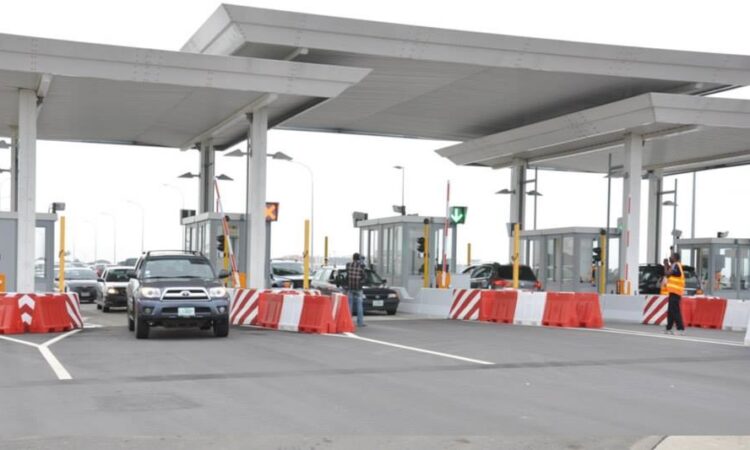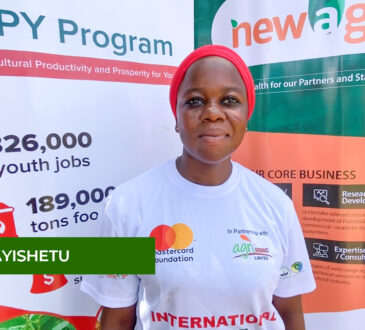
Dear Mr. President Mahama
It’s been just 12 days since you assumed office, but I know I speak for most Ghanaians when I say you have indeed started resetting the nation. Kudos, Sir. More grease to your elbows.
In your first 120 days social contract with Ghanaians, you promised to “Nominate within the first 14 days the complete list of Cabinet Ministers for parliamentary approval” a move that many accept would enable you to achieve your second promise to “Constitute the LEANEST AND MOST EFFICIENT government under the fourth republic in my first 90 days in office.” Mr. President, so far, so good. As of today, January 19, 2025, you’ve officially reduced the number of cabinet ministries to 23 and appointed 12 cabinet ministries. I am confident that in the next 48 hours, you’ll nominate the rest of the 11 cabinet ministers.
I am also impressed with Parliament’s swift move to vet your minister nominees, Sir. One vetting that has created news buzz is your first, and maybe most crucial appointment yet, Dr. Casiel Ato Forson, minister-designate for finance.
When asked what the government would do about road tolls, the minister-designate said that the NDC had always maintained that the road tolls would be brought back. He even re-echoed former minority leader and current minister-designate for education, Haruna Iddrisu, who, in a 2022 press conference by the NDC minority in parliament, said, “We demand that booths be made functional and the revenues accruing from it made available for the republic. Nowhere in the world, will you travel and you’ll not see functional toll booths. We think that it’s only proper that it’s reintroduced and probably adjusted.” In his recent vetting, Dr Ato Forson shared similar sentiments, stating, “Road tolls are collected all over the world. Ghana won’t be the first. The only thing is we have to collect the revenue effectively and efficiently.”
My interest in this letter, Mr. President, stems from the proposal to adjust and collect the road tolls effectively and efficiently.
Clearly, this decision reflects a growing recognition that Ghana must act decisively to address the funding shortfall that has plagued our road infrastructure since the tolls were abolished, by the NPP government in 2021. However, the approach to reintroducing tolls requires careful thought. Reconstructing toll booths will revive a system that has proven inefficient, costly, and inconvenient. Instead, we can adopt a more innovative and effective solution by integrating road tolls into the roadworthiness fees collected annually by the Driver and Vehicle Licensing Authority (DVLA).
In 2021, the cessation of toll collections marked a significant shift in public policy in Ghana. The government, aiming to reduce traffic congestion at toll booths and curb corruption in manual toll collection, introduced the Electronic Transaction Levy (E-Levy) as an alternative revenue source. The rationale behind this decision was logical: digital taxation would eliminate the inefficiencies of toll booths while generating even greater revenue. However, the reality was far from what was anticipated. The E-Levy, hindered by resistance from the public and low compliance rates, failed to meet its revenue targets. The expected financial windfall to replace road tolls never materialized, leaving a gaping hole in our road maintenance budget. Roads that once saw some semblance of upkeep began deteriorating rapidly, affecting transportation costs, travel times, and economic productivity.
Yet, the effects of the toll cessation were felt most acutely by ordinary Ghanaians. Commuters who rely on highways such as the Accra-Tema Motorway and the Kasoa-Cape Coast stretch began to notice a free flow of vehicular traffic. And since you have promised to abolish the E-levy, government revenue will see a further fall.
The reintroduction of tolls is, therefore, a welcome development. However, reconstructing toll booths to collect these fees would be a costly and shortsighted endeavour.
According to the CEO of the Ghana Chamber of Construction Industry, Mr Emmanuel Cherry, the country lost around GHC78 million per month after the scrapping of road tolls. He has therefore advised that any reintroduction of road tolls should be modernized to avoid the traffic congestion and health hazards associated with the previous system.
Ghana’s experience with toll booths is riddled with inefficiencies that cannot be ignored. According to the Ministry of Roads and Highways, there are thirty-eight (38) toll booth locations with over 100 toll booths across the country. These structures were notorious for causing traffic bottlenecks, especially during rush hours. Long queues at toll booths often resulted in delays that cost businesses valuable time and commuters unnecessary frustration. In 2017, James Dickson Fiagbolor, a lecturer at the Ho Technical University wrote an article in which he estimated that approximately 58 million vehicular trips are made into and out of Accra each month. According to him, each commuter in Accra loses 2.5 hours each day in traffic, on average.
Mr. President, I was not very good in Core Maths back in school but indulge me on this: Using the 2024 national minimum wage of GH¢18.15 per day and an average loss of 2.5 hours per commuter daily, equivalent to GH¢5.68 per day based on an 8-hour workday, commuters experience a monthly loss of GH¢113.60 over a 20-day working month. Given that approximately 58 million trips are made into and out of Accra each month, according to Mr James Fiagbolor’s article, and assuming an average of two trips per day per commuter, going to work and coming from back from work, this translates to an estimated commuting population of 29 million individuals. Consequently, the total monthly economic loss due to traffic congestion in Accra amounts to approximately GHC3.29 billion.
I am not saying all traffic congestion is caused by toll booths, but clearly, some of the most exhausting traffic congestions happen at toll plazas. Take the Kasoa, Accra and Ashaiman plazas as cases in point. In August 2024, then Vice President and Presidential Candidate for the NPP is quoted to have said that before abolishing road tolls in Ghana, the government was raking in GHC70 million yearly from the collection, adding that if everybody paid the tolls, the state could have generated GHC2 billion per annum. If you make the potential loss-and-gain comparison, Sir, one needs not to be a great mathematician and policy analyst to realise that, in cities like Accra, where productivity is already hampered by congested roads, reintroducing toll booths would be a retrogressive policy decision. The same can be said for Kumasi.
Beyond lost productivity, traffic congestion at toll plazas leads to increased fuel consumption, higher vehicle maintenance costs, and elevated levels of air pollution. These factors collectively diminish the quality of life for residents and reduce the overall competitiveness of Accra as a city.
Moreover, the manual cash collection system used at toll booths was prone to corruption. Reports of revenue leakages were rampant, with significant portions of collected funds unaccounted for. The operational costs of maintaining toll booths and paying staff further ate into the revenue generated, reducing the funds available for road maintenance. Rebuilding this system would not only be a step backwards but also an inefficient use of public resources at a time when every cedi counts.
Hence my proposal, Mr. President; to integrate toll payments into DVLA’s annual roadworthiness certification process. This method offers a far more practical and forward-thinking solution. Every vehicle owner in Ghana is required to obtain a roadworthy certificate annually to ensure their vehicle is fit for use. By incorporating road tolls into this existing system, we can achieve broad-based revenue collection without the need for additional infrastructure. This approach ensures that every vehicle owner contributes to road maintenance, addressing the inequities of the previous system where only those who used toll roads paid the fees. For instance, residents of Kasoa and Tema bore the brunt of toll payments, while those in affluent areas like East Legon, who rarely ventured onto tolled highways, were effectively exempt. Integrating tolls into roadworthiness fees ensures fairness and eliminates regional disparities.
In addition to fairness, this system offers significant cost savings. The DVLA already has the administrative infrastructure to collect roadworthiness fees, meaning no additional personnel or facilities are required. This eliminates the need for capital-intensive investments in toll booth construction and maintenance. The funds saved can be redirected toward actual road repairs and development, ensuring that every cedi collected is put to productive use.
Mr. President, Ghanaians are increasingly embracing digital payments and streamlined processes. Having to stop at toll booths to pay a fee—often in cash—feels archaic in an era where cashless transactions are becoming the norm. A DVLA-integrated system eliminates this inconvenience, allowing vehicle owners to make a single payment annually rather than enduring daily stops at toll booths.
In 2022, Dennis Peprah of the GNA reports that the DVLA registered 3.2 million vehicles as of the end of 2022. A year later, when then Finance Minister, Ken Ofori Atta intimated the reintroduction of road tolls, the suggested toll amounts were:
- Motorbikes: 50Gp
- Agric tractors: GH¢1
- Saloon cars: GH¢1
- Pick-ups/44 vehicles, light buses*: GH¢1.50
- Heavy buses: GH¢2
- Medium goods trucks (three axles): GH¢3
- Heavy duty goods trucks (four axles): GH¢3
- Heavy goods trucks with five axles or more: GH¢3.50
Let’s do a little maths again, even if we assume a flat rate of GHC1 for each car as a road toll, it means each vehicle would contribute a road toll of 365ghc a year. With the 3.2 million vehicles – just for the sake of numbers because every year the number rises- the potential daily revenue would amount to GH¢3.2 million. Over a 30-day month, this translates to GH¢96 million, and over a year, the total revenue could reach approximately GH¢1.168 billion. The daily and annual toll amounts can be debated but no matter what, collecting road tolls annually using the roadworthy system, brings more gain to Ghana.
Besides, linking toll payments to roadworthiness certification ensures compliance because vehicle owners cannot avoid paying the fees without jeopardizing their ability to legally operate their vehicles. This level of enforcement was lacking under the previous system, where some drivers, particularly those using untolled routes, escaped contributing to road maintenance altogether.
Critics may argue that integrating tolls into roadworthiness fees imposes an additional financial burden on vehicle owners, particularly during challenging economic times. While this concern is valid, it is important to recognize the broader implications of failing to maintain our roads. Poor road conditions cost drivers more in the long run, from frequent vehicle repairs to increased fuel consumption. Additionally, well-maintained roads reduce travel times, improve safety, and enhance overall productivity. The benefits of a functional road network far outweigh the marginal increase in annual fees, making this an investment in the nation’s future.
I recognise that the success of this proposal hinges on amending existing road traffic laws to allow for the integration of tolls into roadworthiness fees, massive public awareness campaigns, exhaustive stakeholder engagement, particularly with transport unions and vehicle owners and upgrading of DVLA’s digital infrastructure to handle the increased scope of operations. It won’t be easy. But it will be worth the work, Sir.
Mr. President, Ghana stands at a crossroads—literally and figuratively. Our nation’s road network is the backbone of our economy, facilitating the movement of goods, services, and people. Yet, rebuilding toll booths is a relic of the past; integrating tolls into the DVLA’s roadworthiness system is the way forward.
My colleagues at the Institute of Liberty and Policy Innovation (ILAPI) are already preparing a policy paper to submit to you on this. I hope that when we are ready, we will get the audience with you to further discuss and agree on the best path forward.
All the best in your upcoming nominations, Sir. I’ll write again next week.
By Theodore Abiwu (Efo) Korku Mawutor







